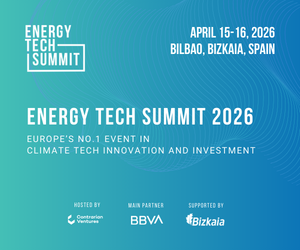Articles - Past and present news from The Energy Industry Times
Media Partners
Xcel Energy launches 5.5 GW power expansion plan for Texas and New Mexico
- 7 months ago (2025-07-22)
- David Flin
Xcel Energy has announced plans to build 5.5 GW in Texas and New Mexico, consisting of 521 MW of extensions on existing facilities and the addition of 17 new power projects of a combined capacity of 5168 MW.
Koeberg nuclear power station Unit 1 maintenance period extended
- 7 months ago (2025-07-21)
- David Flin
South Africa’s Eskom has announced that Unit 1 of the Koeberg nuclear power station, South Africa’s only nuclear facility, has had its operational maintenance period extended for an additional month.
Talen Energy to acquire power stations in Pennsylvania and Ohio
- 7 months ago (2025-07-18)
- David Flin
Talen Energy has announced it has signed agreements to acquire two CCGT plants for a total of £3.5 billion.
Eskom aims to generate 32 GW renewable energy by 2040
- 7 months ago (2025-07-17)
- David Flin
Eskom has announced plans to shift heavily towards renewable energy sources from its current predominantly coal-fired generation fleet, targeting 32 GW of renewable energy capacity by 2040, compared to the current level of less than 1 GW.
Iraq’s worsening electricity crisis risks causing larger protests
- 7 months ago (2025-07-16)
- David Flin
Experts say that the protests against worsening electricity blackouts in Iraq are likely to exacerbate in the near future following the disruption to Iranian gas supplies.
Clean energy sources make up 50 per cent of India’s power generation capacity
- 7 months ago (2025-07-15)
- David Flin
India has made a significant leap in its transition to clean energy, achieving 50 per cent non-fossil fuel-based power generation capacity, five years ahead of its 2030 target.
EBRD loans €160 for decentralised Ukraine power generation
- 7 months ago (2025-07-14)
- David Flin
The European Bank for Reconstruction and Development (EBRD) has signed an agreement to supply a €160 million loan to Ukrnafta, a Ukrainian state-owned oil and gas company which is using EBRD finance to supply and install small-scale gas-fired distributed power and cogeneration capacity around the country.
Utility-scale agreement for first major solar plant in Belize
- 7 months ago (2025-07-11)
- David Flin
Belize Electricity Limited (BEL) has signed an agreement with Blair Athol Power Company Limited (BAPCL) for the construction of a 15 MW solar power plant in Buena Vista, Corozal District, Belize.
Wärtsilä to supply power plant for Pakistan mining operation
- 7 months ago (2025-07-10)
- David Flin
Wärtsilä has announced that it has won a contract from Reko Diq Mining Company (RDMC) to supply a 204 MW power plant for the Reko Diq copper-gold mining project in Pakistan.
Ethiopia announces completion of the Grand Ethiopian Renaissance Dam
- 7 months ago (2025-07-09)
- David Flin
Ethiopia has announced the completion of the Grand Ethiopian Renaissance Dam (GERD), located on the Blue Nile near the Sudanese border.











